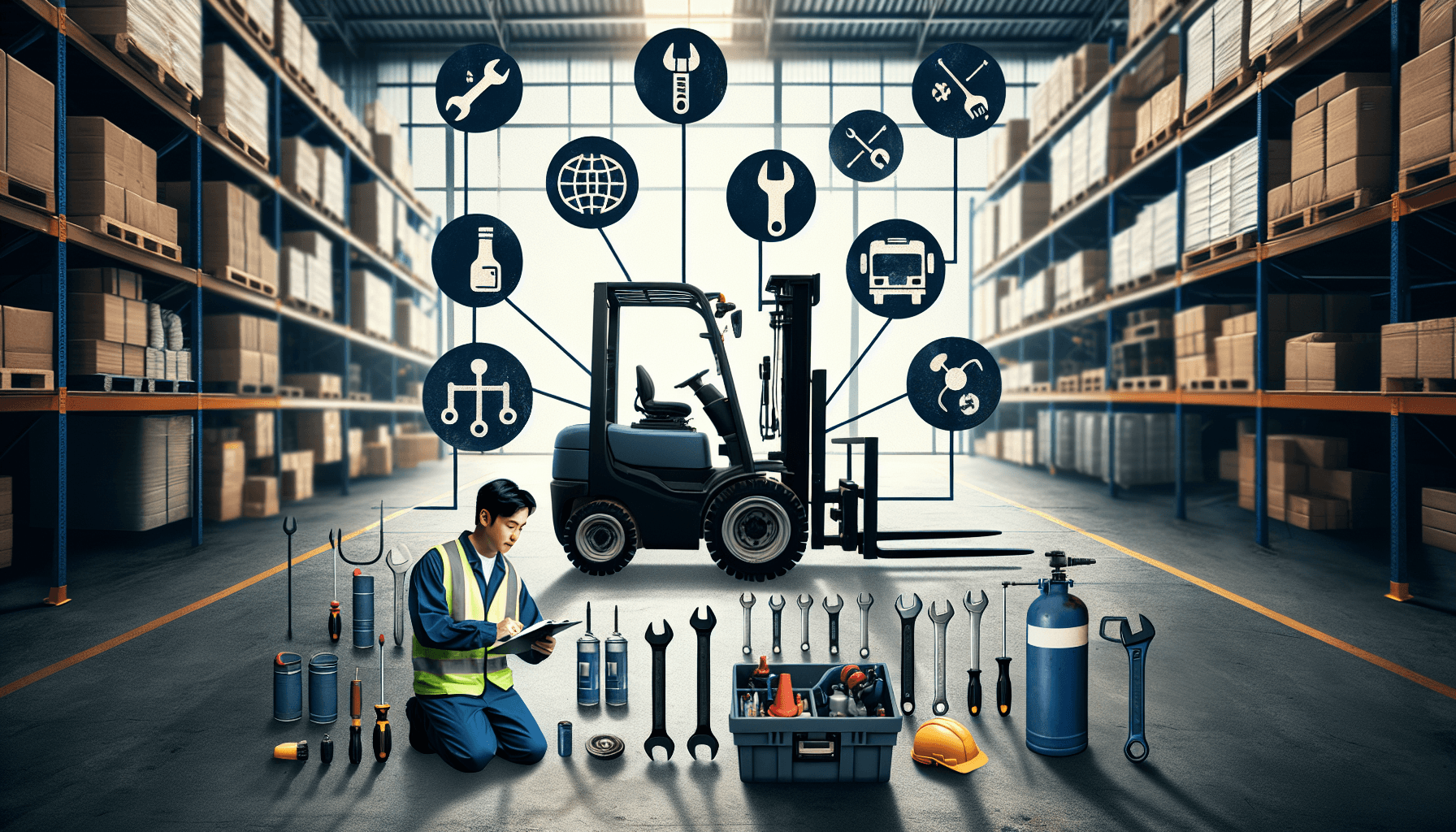In today’s fast-paced warehouse operations, forklifts play a vital role in ensuring smooth and efficient material handling. These powerful machines are used to lift, move, and transport heavy loads, making them a crucial asset for businesses. However, just like any other equipment, forklifts require regular maintenance to keep them running smoothly and safely.
The Importance of Regular Forklift Maintenance
Regular forklift maintenance is not just important; it is essential for several reasons. Let’s take a closer look at why businesses should prioritize maintaining their forklifts:
- Maintain Productivity: One of the most significant benefits of regular forklift maintenance is that it helps to maintain productivity within the warehouse. When forklifts are well-maintained, they are less likely to break down unexpectedly, leading to reduced downtime and uninterrupted workflow. By ensuring regular inspections, checks, and servicing, businesses can mitigate the risk of sudden breakdowns and keep their operations running smoothly.
- Ensure Operator Safety: Forklifts are powerful machines that can cause serious accidents if not properly maintained. Regular maintenance helps in identifying and addressing potential safety hazards, ensuring that the forklifts are in optimal condition to be operated safely. This includes checking for issues like worn-out tires, malfunctioning brakes, faulty lights, and more. Investing in regular inspections and maintenance helps to minimize workplace accidents and protects the safety of operators and other employees.
- Prolong Lifespan: Forklifts are a significant investment for any business, and ensuring their longevity is crucial for maximizing ROI. Regular maintenance helps in identifying any underlying issues or wear and tear that can lead to major breakdowns or premature failures. By addressing these issues promptly, businesses can extend the lifespan of their forklifts, saving on the cost of costly repairs or replacements.
- Optimize Efficiency: Well-maintained forklifts are more efficient and energy-saving. Regular maintenance can help identify and rectify any issues that may be negatively affecting the forklift’s performance. This can include things like engine tuning, checking and replenishing fluids, adjusting brakes and clutches, and cleaning air filters. By optimizing the efficiency of forklifts, businesses can reduce fuel consumption, increase productivity, and minimize their environmental footprint.
- Comply with Regulations: There are various regulations and standards in place regarding forklift safety and maintenance. Adhering to these regulations is not only a legal requirement but also essential for the wellbeing of employees and the reputation of the business. Regular forklift maintenance helps to ensure compliance with these regulations by addressing any issues promptly and maintaining proper documentation of inspections and servicing.
Given the importance of regular forklift maintenance, it is advisable for businesses to partner with reliable experts who specialize in turnkey forklift maintenance solutions. These professionals have the expertise and knowledge to conduct thorough inspections, perform routine maintenance tasks, and provide guidance on best practices for forklift care.
HCO Innovations is a reputable provider of warehouse optimization solutions, including comprehensive forklift maintenance services. They specialize in enhancing safety, productivity, efficiency, and cost-effectiveness within warehouse operations. With their turnkey forklift maintenance solutions, businesses can rest assured knowing that their forklifts are in expert hands.
By partnering with HCO Innovations for regular forklift maintenance, businesses can experience the following benefits:
- Regular inspections by skilled technicians to identify and address potential issues
- Routine maintenance tasks, including fluid checks, filter replacements, and more
- Prompt repairs and servicing to minimize downtime
- Compliance with safety regulations and proper documentation of inspections
- Expert guidance and recommendations for optimizing forklift performance and lifespan
Investing in regular forklift maintenance is an investment in the seamless and safe operation of warehouse activities. By prioritizing maintenance, businesses can ensure the longevity of their forklifts, maintain productivity, and protect the safety of their employees.
Interested in learning more about turnkey forklift maintenance solutions? Visit HCO Innovations for more information.

